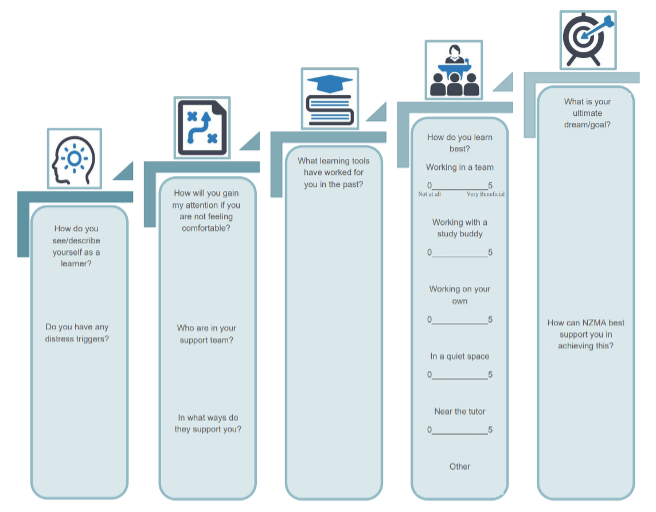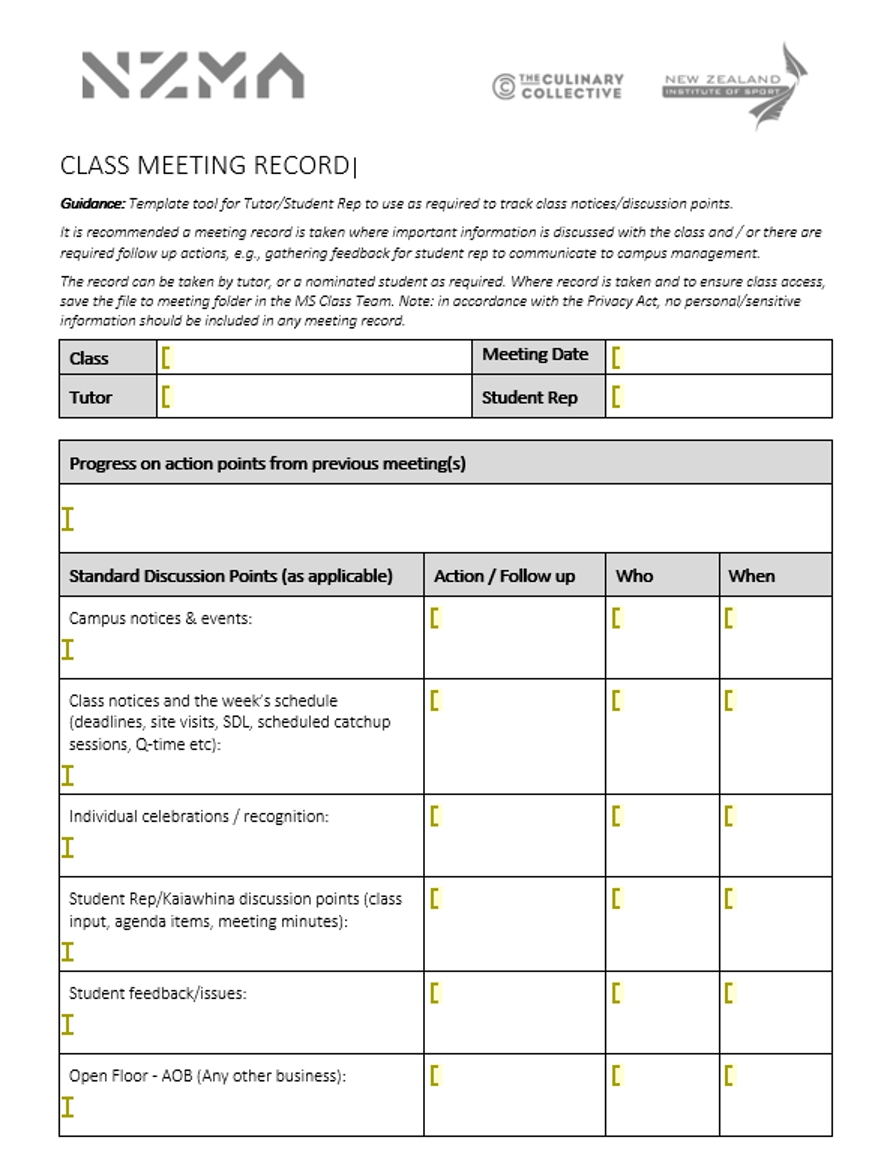In this Module you will learn about how we support each individual to succeed. As an organisation we work hard to ensure that ALL learners are supported throughout their program. This means having a dedicated course tutor, spending time connecting with each student from your class. From reviewing student feedback to ensuring we are meeting their needs. It is important to note that the success of a student requires all areas of support to be implemented.
Each class is assigned a course tutor, this is to ensure that students within that class have someone as their first point of support. The course tutor is responsible for tracking their class's success, through attendance tracking, their assessment achievement and also any concerns that may arise that could cause a student to fall behind or hinder their learning.
Kūwaha is a tool that was co-created by the learner success team and the students. The purpose is to help tutors to have a better understanding of their students, and an opportunity to connect individually. Kūwaha also helps a tutor to identify any students that may be neurodiverse, and to understand what ways to best support the student. There is an electronic and paper version of Kūwaha (based on feedback from students who prefer either a paper copy of electronic).
See the Kūwaha template below which should be complete with every student from your class.

Each student will have a Qtime with their course tutor (the first Qtime will be 6 weeks after the Kūwaha meeting). These are very important meetings as it allows you to discuss progress with each individual student in your class, and it also allows you to understand what their goals are, and to agree together on how to achieve these goals.
These are scheduled for every 6 weeks. If a student is absent on the day that a Qtime is scheduled, you should aim to arrange another suitable day as we don’t want a student to miss Qtimes. Qtime notes should paint a picture of the student, this helps you as a tutor to get to know the student better.
Each week the class tutor should be meeting with their class to ensure students within the class are kept updated topics you may choose to cover in class meetings might be:
- Events happening on campus
- Reminders of any industry visits
- Any guest speakers visiting the campus
- An opportunity to celebrate special occasions as a class
- Individual achievements
- Anything else you think is suitable to cover in a class meeting setting
As a tutor you will get to know your class, and the individuals that make up the class. Use your professional judgement to decide how you communicate these messages, as some students may not appreciate sharing their attendance with the entire class.
Below is a copy of the template used for class meetings
To access the digital please click here

If a student is falling behind in either their attendance and/or achievement of assessments, they should have an individual learning plan in place. This allows for the tutor to set goals with the student to help them succeed. This way the students have a clear plan to help them to achieve.
A learner success lead is assigned to each campus (some campuses share a LSL with other campuses). The LSL supports learners that may require additional support to succeed at NZMA, these learners may be:
- Our Level 2 learners
- Learners that are a Step 1 and/or Step 2 for Literacy and/or Numeracy
- Neurodiverse learners
- Students falling behind in their assessments
- High risk of withdrawal
Spend some time with your LSL to understand what they do, and how they do it.
A students voice is important to NZMA, this allows for a student centric approach. We gain feedback from our students through:
- Scheduled surveys (campus and tutor surveys)
- Class rep/Kaiawhina meetings – normally conducted by CM’s and/or LSL’s
Your Campus Manager will go through student feedback with you, once your class has been surveyed.
It is essential to ensure your students participate and have a student voice. Put the link and QR code up on your white board or post in your teams when the surveys are running. Brief your students on what the survey covers and provide opportunities for them to engage with their Class rep/Kaiawhina. Out students need to know they have a voice and what improvements are implemented as a result of their feedback.
At NZMA, success does not just mean gaining a qualification. We pride ourselves in finding relevant and meaningful employment for students once they graduate. We have embedded key tools/workshops within our programs that help our students to be ‘work ready’ such as CV building, interview skills and other relevant ‘work ready’ topics. We also have career navigators that are actively connecting with the industry to build new relationships that will connect our students with employers.
NZMA understands that there are diverse needs within each campus, and having professionals available for our students ensures that they are well supported throughout their time studying with NZMA. We provide an online counselling service free of charge to all students. See your Campus Manager for more details.
Sonder is an app that was primarily used by NZMA international students, however this is also a tool that is now available for ALL NZMA students. Sonder is a digital care platform for students to actively take control of their safety and wellbeing. Sonder’s certified model and accredited professionals provide world-class care for our students. They cover medical, safety and mental health concerns. Some areas that Sonder can support students in:
- Can track when they leave and when they arrive home – 24/7
- Can talk to a real person to determine health needs
- Can make referrals to relevant support required
For more information on what Sonder offers, visit their website:
Sonder | How it Works | Wellbeing & Safety Solution Overview
Campus Managers will often arrange other support for their campus that fits with what they identify as a need on campus. This might include someone coming onto campus from a bank to talk about budgeting with students. Or guest speakers from the industry that come in to talk about job opportunities. This may also include organisations like Dress for Success, that might promote their services to students.
